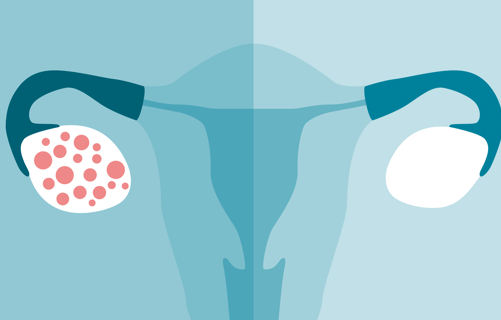The New Definition of PCOS: Understanding the Impact of Lifestyle and Nutrition
Understand the new and scientific reason for PCOS from modern science and modern lifestyle
Suvigya Sahu ( Holistic Nutritionist & Wellness Coach)
12/10/20242 min read
The New Definition of PCOS
Polycystic ovary syndrome (PCOS) is a condition that affects many girls and women today. It is characterized by a combination of poor lifestyle choices and poor nutrition, leading to various symptoms and health complications.
Understanding PCOS
PCOS is a hormonal disorder that affects the ovaries, causing them to enlarge and develop small cysts. While conventional medicine is not able to find the exact cause of PCOS, it is not fully understood and only works on the symptoms, whereas fettle holistic treating in holistic approach it is considers nutrition, movements, sleep, and stress management. It is also believed to be influenced by a combination of genetic and environmental factors. But these will be purely influenced by lifestyle changes.
Traditionally, PCOS was defined by the presence of certain symptoms, such as irregular periods, excess hair growth, and acne. However, the new definition of PCOS takes into account the underlying factors that contribute to the condition.
The Role of Poor Lifestyle and Nutrition
Scientific research has shown that poor lifestyle choices, such as sedentary behavior, lack of exercise, unhealthy eating habits, and unhealthy ultra-processed food can significantly increase the risk of developing PCOS. These factors contribute to weight gain, insulin resistance, and inflammation, all of which are associated with the development of PCOS.
Furthermore, poor nutrition plays a crucial role in the development and progression of PCOS. A diet high in processed foods, refined sugars, and unhealthy fats can disrupt hormonal balance and lead to insulin resistance. These hormones also need good-quality nutrition for their formation. This, in turn, affects the production and regulation of hormones involved in ovulation and menstrual cycles and also unnecessary stress on the mind and body.
The Impact on Girls and Women
PCOS can significantly impact the physical and emotional well-being of girls and women. The hormonal imbalances associated with PCOS can lead to irregular periods, infertility, and increased risk of developing conditions such as diabetes, heart disease, and certain types of cancer.
In addition to the physical symptoms, PCOS can also take a toll on mental health. Many girls and women with PCOS experience anxiety, depression, and low self-esteem due to the physical changes they undergo and the challenges they face in managing their condition.
Managing PCOS
While PCOS cannot be cured, it can be put into remission and managed through lifestyle modifications and appropriate nutrition. Adopting a healthy lifestyle that includes regular exercise, a balanced diet, good quality sleep, and stress management techniques can help improve symptoms and reduce the risk of complications.
Medical treatments for PCOS may include regular blood tests, regulating menstrual cycles, and a healthy diet every day to manage insulin resistance and take care of what you consume and how you lead your life for those trying to conceive. Individuals with PCOS need to work closely with their healthcare providers to develop a personalized treatment plan.
Conclusion
The new definition of PCOS recognizes the role of poor lifestyle choices and poor nutrition in the development and progression of the condition. By understanding these underlying factors and taking appropriate steps to address them, girls and women with PCOS can better manage their symptoms and root cause and improve their overall health and well-being.
Disclaimer: Everybody is unique and requires specific treatment approaches according to the body's immunity system. This knowledge and information is based on Scientific facts and research. If required contact the wellness expert or doctor.


